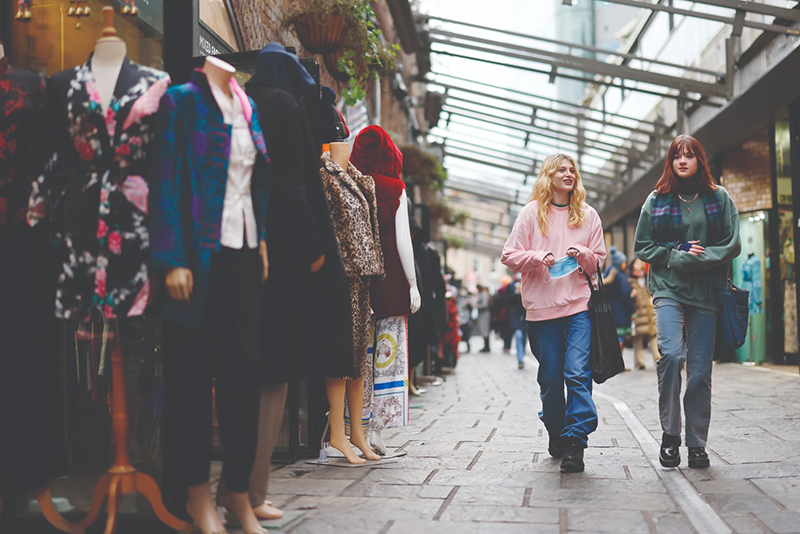LONDON: Restrictions imposed in the wake of the Omicron coronavirus variant have "wiped out" much of a recent recovery enjoyed by UK bricks-and-mortar stores, the British Retail Consortium revealed Friday. It comes as UK businesses and consumers face mounting fallout from surging inflation, including higher interest rates.
Much of the progress made in late 2021 "was wiped out in December as surging Omicron cases and new work-from-home advice deterred many from shopping in-store, particularly in towns and city centers", said BRC chief executive Helen Dickinson. "Nevertheless, while UK footfall saw a moderate decline compared to previous months, it remained above levels of other major European economies, as the country avoided some of the more severe restrictions implemented elsewhere," she added in a statement.
The number of shoppers visiting UK stores slid 18.6 percent in December compared with two years earlier, or before the onset of the coronavirus pandemic, according to the BRC.
"December footfall capped a challenging year for brick-and-mortar stores, which saw footfall down one-third on pre-pandemic levels," Dickinson added.
Soaring virus cases
The UK, already among the worst hit countries in Europe by the pandemic with a virus death toll of nearly 150,000, has seen a fresh surge in cases owing to the arrival of the Omicron variant in late November. More than one in 20 people had Covid-19 in the week ending December 31 -- the highest UK infection rate recorded during the pandemic.
British companies are meanwhile suffering a "huge headache" because of continuing supply chain disruptions, soaring inflation and rising energy costs, a business group warned Thursday. The British Chambers of Commerce said its study of almost 5,500 companies found that a record 58 percent expect an increase to their prices in the quarter. "The persistent weakness in cash flow is troubling because it leaves businesses more exposed to the economic impact of Omicron, rising inflation and potential further restrictions," noted Suren Thiru, head of economics at the BCC.
Despite the unprecedented number of virus cases in the UK, Prime Minister Boris Johnson has opted not to introduce tougher restrictions in England, arguing the rising levels of hospitalizations and serious illness do not yet require more measures. But other UK regions have tightened rules, with devolved governments in Edinburgh, Cardiff and Belfast all rolling out post-Christmas curbs on socialising and large events. The Bank of England meanwhile last month lifted its main interest rate to 0.25 percent to combat decade-high British inflation.
The BoE raised the rate from a record low 0.1 percent but left unchanged its massive stimulus package.
It marked the first increase in more than three years and made Britain the first of the G7 nations to lift borrowing costs since the start of the pandemic. UK annual inflation rocketed in November to 5.1 percent, more than double the BoE's 2.0-percent target. - AFP











